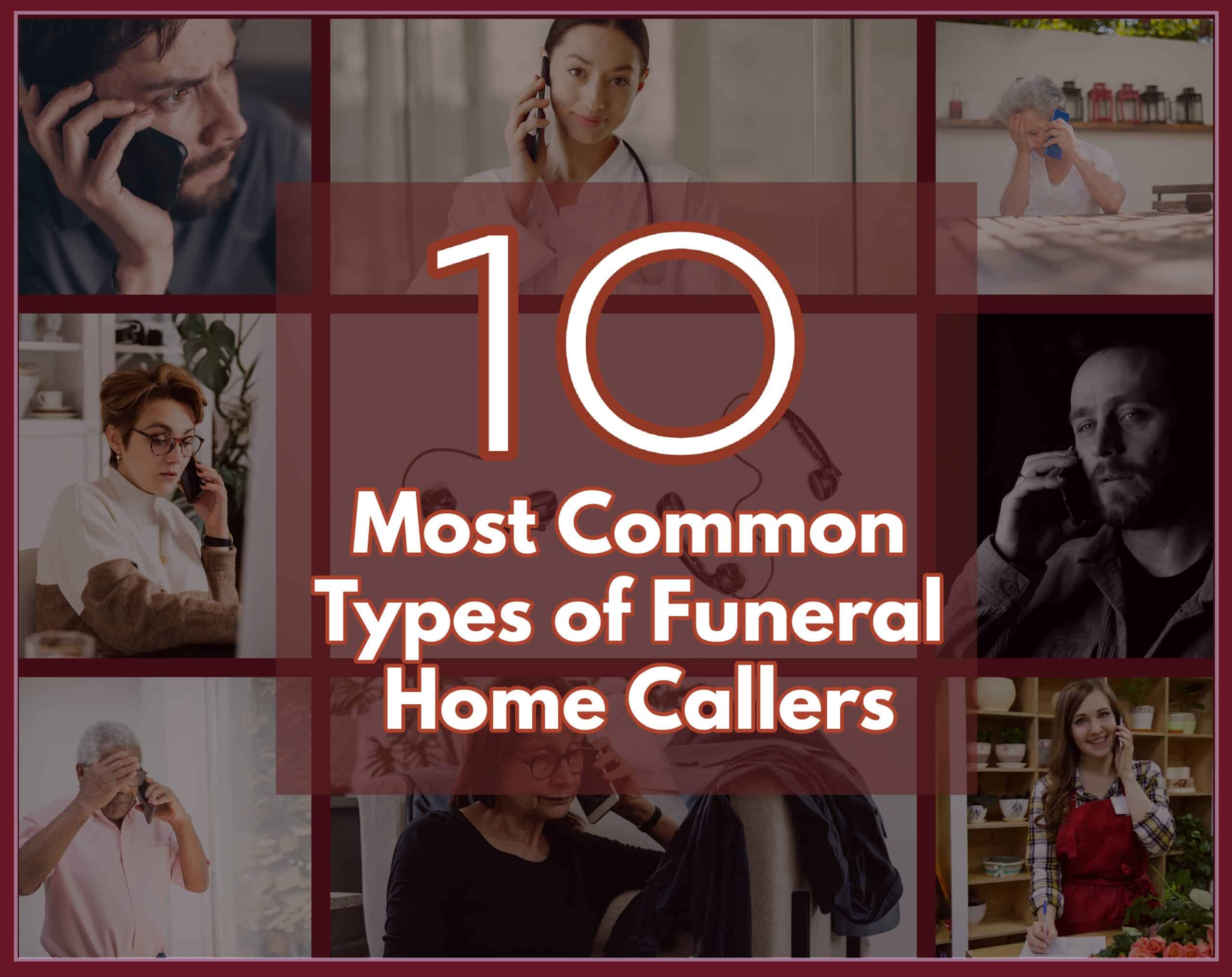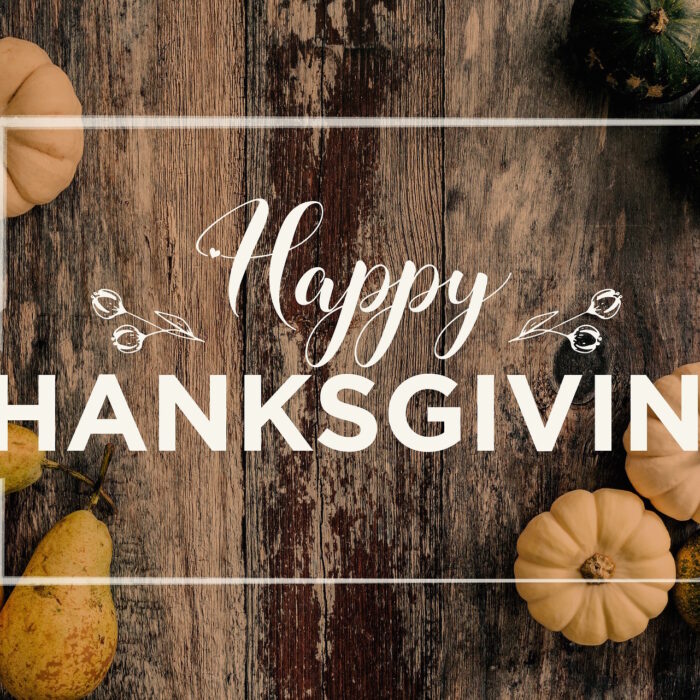Apr 18, 2022
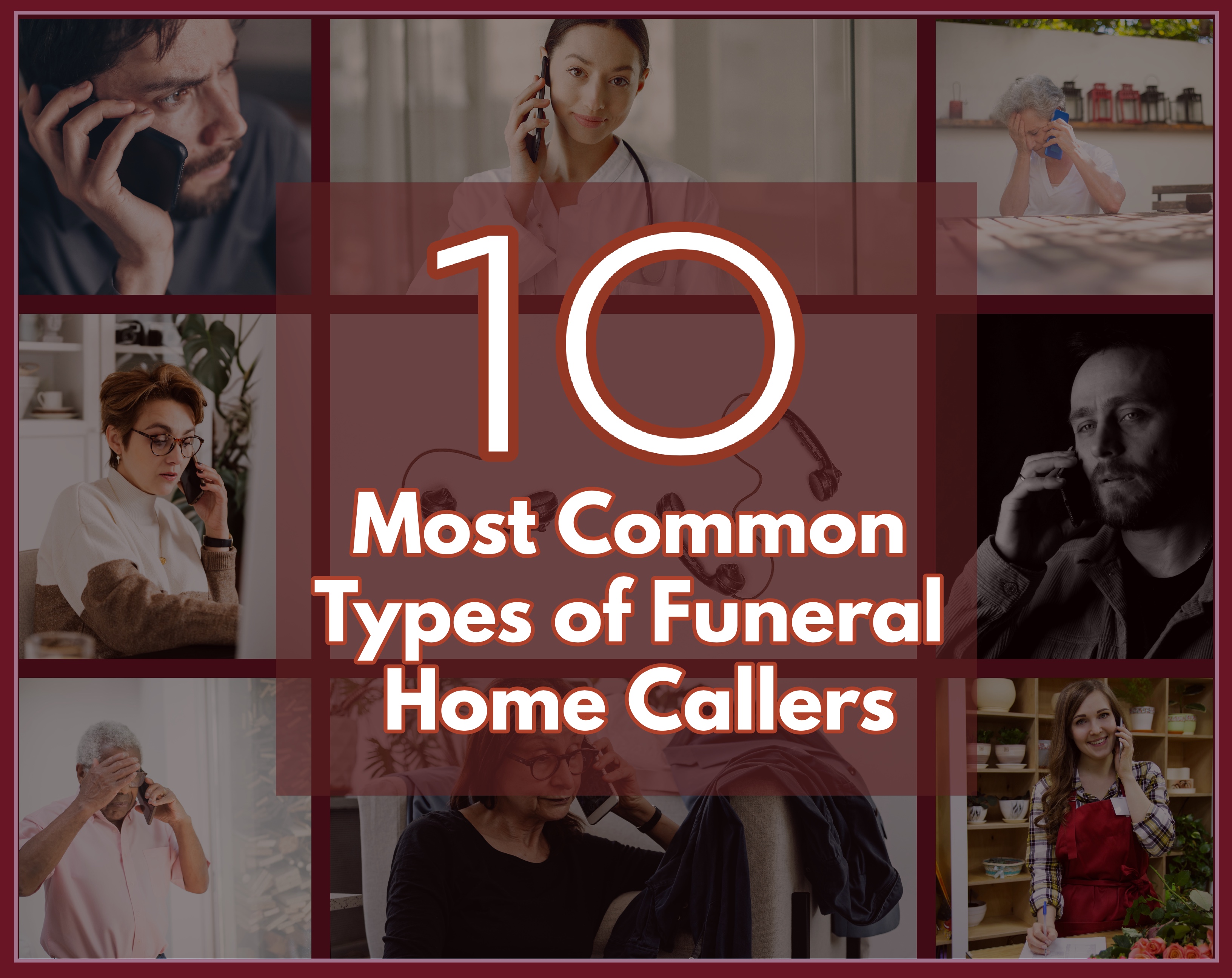
“You work at a funeral home answering service? That must be so depressing. Do you just speak to people who are crying all day?”
As an employee of ASD for more than 18 years (with 8 of those years in a Call Specialist role), I have lost count of the amount of times I have heard a statement like this. Most people don’t give much thought to the different types of calls a funeral home may receive and assume that every single interaction is with a grieving family member. While we all certainly handle these calls on a frequent basis, most are surprised to learn about the other funeral home callers we speak with day in and day out.
Although most people might expect every person who calls a funeral home to be crying on the phone, that just isn’t the case. In many instances, it is not an immediate family member reporting the death at all but someone else such as an in-law, healthcare worker, or police officer. The call may not be a person reporting a death at all, since only about 20% of incoming calls answered by ASD are. While it might be easy to surmise our role here at ASD is predominately depressing due to our exposure to so much grief and sadness, we also bear witness to people’s capacity to love and support one another. Furthermore, by listening to the stories of callers, we have a unique appreciation for the positive impact funeral professionals bring to their communities.

Like funeral directors, we are used to outsiders forming an incorrect impression about the realities of the work we do. So, we thought we would set the record straight. To illuminate our role here at ASD and the work that goes on at funeral homes behind closed doors, we have created a list to define the most common types of people to call a funeral home.
The 10 Most Common Types of Funeral Home Callers
1. The Grieving Family Member

Here’s the thing a lot of people forget about grief: It does not look the same for every person. Sometimes, grief makes its entrance obvious through sobs and loud expression. Other times, it arrives without ceremony in silent, steady tears. Then there is the world of hidden grief, where bereavement conceals itself behind tightlipped mouths and downcast eyes.
When trying to identify a person in need of comfort or support, you can rely on these visual cues to help you discern how best to help the person through their grief. When speaking to someone over the phone, however, your capacity for compassion is blindfolded. This forces you to rely on subtle clues to determine the emotional state of the person on the other line.

One thing you learn pretty fast working at ASD is there is not just one type of bereaved caller. How a person expresses themselves when grieving is varied and multi-layered. As Call Specialists we are only privy to the emotions the caller is willing to reveal to us. In some situations, this may mean a caller is sobbing and unable to speak coherently. In others, family members may want to freely share detailed stories about their loved one’s life or death. Sometimes, callers may be intentionally vague. In this case, we must rely on subtle cues such as a long pause or sharp intake of breath to discern that a death has occurred.
A family reporting a death may one of the most common situations we handle, but there is no one type of grieving caller.
2. The Overextended Healthcare Worker

The majority of death calls handled by ASD are reported not by a close family member but by a healthcare worker. Many are forced to fulfill this task while trying to handle other duties at the same time. Therefore, they may require ASD Call Specialists to be patient with them while they place us on hold, or they may grow frustrated with us as well if they feel trapped on the phone. It is not uncommon to be questioned why we need to gather so much information when handling a death call from a medical facility. These days, pretty much EVERY person working in the field of healthcare is stretched too thin. So, we get it when we hear a nurse or hospital receptionist sigh loudly in our ears and try not to take it personally.
By and large, we enjoy communicating with healthcare workers and try to offer as much grace and positivity as we can during our brief interactions with them. Most of them understand we are just gathering information the funeral home requires just as we understand that speaking to us is just a small part of their very busy and hectic day.
3. The friend/in-law/social worker/clergy member who wants to help

“I am calling on behalf of my wife who just lost her sister. I am helping her to make the funeral arrangements because she is too upset to talk.”
“My friend’s daughter is in your funeral home’s care and I want to make a donation to help pay for the funeral services.”
“I am a pastor calling on behalf of a family in our church. I am hoping to help them get information on funerals for someone who is close to passing.”
These three examples are representative of the type of people we are so privileged to speak to every day at ASD. The people who lend a helping hand when their loved ones need them most. In a lot of cases, they may not have known the deceased person very well or even at all, yet they step in to handle the often-dreaded task of making funeral plans on behalf of another. Whether they are looking to make arrangements, contribute to funeral expenses or gather information, what they all have in common is their desire to support someone they care about through the most difficult time in their life.

We love speaking to these types of people at ASD because they are daily reminders of the power and impact of human kindness. There is no way to take away the pain someone feels after losing a loved one. Yet, taking it upon yourself to remove some of the other burdens that accompany a death is such a selfless and beautiful thing to do for another person. These people are heroes.
4. The information seeker

Whether they do not have access to the Internet or are not web savvy, a large number of people still call funeral homes every day with routine questions about upcoming funerals, local landmarks and recommended florists. Let me let you in on a little secret. We all say that helping to provide comfort to those who are grieving is the most satisfying thing about working as a Call Specialist at ASD, and it is.
BUT
The second most satisfying thing about being a Call Specialist is when you are handling a call from someone who says, “Oh you’re just the answering service you can’t help me.” And then it turns out you DO have the information they need and CAN help them.

Ok I jest, but in truth we love funeral homes that keep us updated on current services, local recommendations (like florists, hotels, etc), directions to their building(s), street landmarks, parking information and nearby cemeteries. Having all of these details in front of us is immensely helpful to provide to the information seekers who can and do call funeral homes at every hour of the day.
We make it super easy for you to send us this data. Just click on the Helpers link you’ll find on both our website and mobile app to send us details on local establishments in your area. Here’s a helpful tutorial video with some more information on how to do this. You can also call an ASD Supervisor 24/7 to add location notes to your account.
We love being able to answer someone’s question without the need to even take their name and phone number for a call back. We feel good afterwards being able to help someone (especially if they doubted we could.) The caller gets the information they need and you won’t have to return another call to someone who doesn’t know how to use Google. It’s a win for all involved!
5. The lonely or struggling caller who just needs someone to talk to
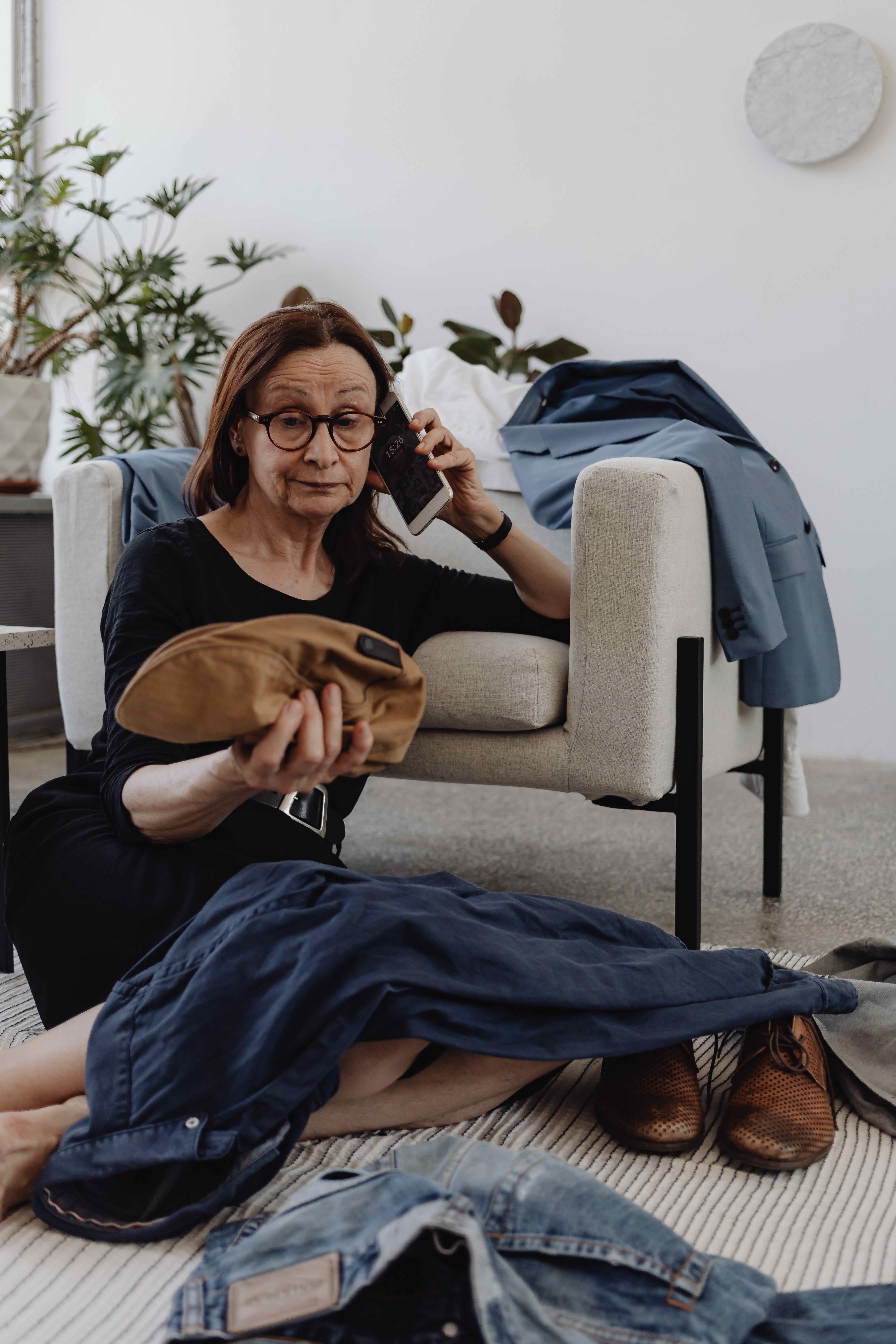
These are the callers that always stick with me the longest. The ones who just want to talk. Maybe the funeral home served a beloved person in their lives in the past or maybe they have prearrangements set up with the funeral home for themselves. Whatever the reason, when they are lonely or upset, they turn to the funeral home for comfort and conversation.
ASD Call Specialists are trained to take detailed messages while keeping calls brief. However, on occasion we will speak to callers in desperate need of a listening ear. The one I always remember was from a mother whose son the funeral home had cremated many years ago. She was having trouble living with his urn in her home and wanted to know what she should do. I remember her opening up and telling me all about her life and asking me about mine. I remember revealing that my family also struggled with what to do with my father’s cremains. It was a powerful moment of human connection that will always stick with me.
Sadly, people will also reach out to a funeral home during times of personal crisis. While ASD Call Specialists are trained extensively on how to handle difficult calls, in the past operators have been deeply affected and troubled by conversations they have had with those who stated they were contemplating suicide. The frequency of these calls lead ASD to develop our S.T.O.P (Suicide Telephone Operator Patch) System in 2017 which links our answering service to trained suicide hotline operators.
With this system, ASD Call Specialists can press an emergency button on their keyboard. This immediately alerts a Suicide Hotline that we are speaking to someone in crisis. The hotline operator will hear a recording notifying them that a distressed and possibly suicidal person is on the line speaking to ASD and instruct them to press any key to be 3-way connected into the call. The call can then be transferred without interrupting the caller or placing them on hold.
6. The Shopper Caller

Not to be confused with the information seeker, the shopper caller has very specific questions related to the funeral home’s pricing and options that only the funeral home staff can answer. Someone may have passed away or a death may be imminent. In a lot of cases, the caller might be intentionally vague and not want to share any details at all until they are given the information they need. ASD Call Specialists receive thorough training on handling shopper calls as we understand these calls may lead to a new business opportunity for funeral home.
Since before the pandemic, ASD has been tracking the number of shopper calls we handle for funeral homes. In June 2016, an average of 10 percent of incoming death calls answered by ASD were pricing calls. By 2021, this figure had increased to 14 percent. This number has continually trended upwards. As more people than ever are using the internet to research and compare different funeral options, it seems likely it will continue to steadily rise.

While every funeral home is different and can set up their own customizable preferences with ASD, we highly recommend to our clients they designate their account to have shopper calls directly patched to staff. This ensures the funeral home is not trying to track down the family after the fact while they are calling other funeral homes for similar information. Setting up your account this way is also a tremendous help to ASD Call Specialists. It is infinitely easier to obtain a caller’s information when you can assure them you are going to be connecting them directly to a funeral director. On the reverse end, asking shopper callers to provide their name and number for a call back feels a bit like walking a tightrope. You never know if you are going to get someone who just hangs up or doesn’t want to tell you a single detail about themselves.
If you would like to learn more about updating your funeral home’s customizations to ensure shopper calls are always patched to your on-call, please don’t hesitate to contact us 24/7 at 800-868-9950 or support@www.myasd.com
7. The Short and Sweet Common Caller

We’re looking at you, Donna with Matthews Casket Company!
Working as a Call Specialist at ASD, you get to know the funeral home vendors and common callers that frequently reach out to every funeral home in America. I’m talking about the florists, casket companies, vault companies, medical examiners, military honor guards, newspapers and life insurance companies we speak with day in and day out. They are used to speaking with the answering service just as much as we are used to speaking with them. It is this symbiotic relationship that makes these to-the-point calls just a pleasure to handle.
The fact that ASD only works with funeral homes has given us a depth of knowledge about the profession and its many facets. We understand that if someone mentions they are calling from a newspaper about an obituary we need to find out if they are on deadline. Or, if someone says they are with Wilburt the message is likely related to a vault order. Similarity, when these organizations hear us answer they often know immediately they are speaking with this answering service and don’t need to provide a lot of extraneous information. This familiarity with one another’s roles helps make these the easiest ones we handle at ASD.
8. The “it’s not really urgent” but it IS caller
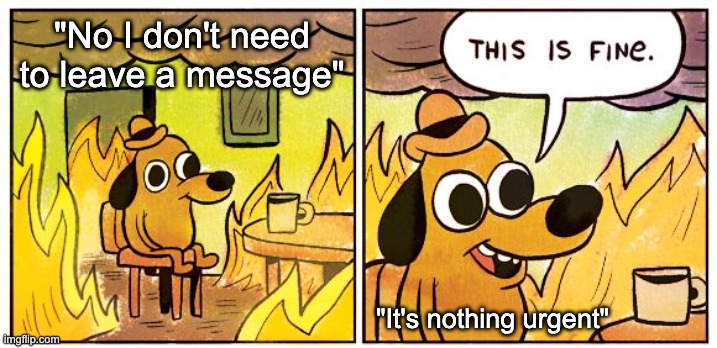
How do you define an urgent message for a funeral home? Every funeral home is different in how they choose to have us screen their calls. This is also true about funeral home callers. Every caller has a different perspective on what does and does not constitute urgency. We have heard stories about family members who sat with a dead body all night instead of calling a funeral home because they just assumed no one would be there to answer the phones at 2 a.m. On the flip side, we have taken plenty of middle of the night calls that were decidedly NOT urgent (see below).
On occasion, we will handle a call where the person doesn’t believe their need is important enough to warrant leaving a message for a return call. After a little probing, we learn someone is close to passing or a time-sensitive change is needed for an upcoming service. There have also been quite a few instances when asking discovering questions has resulted in a new first call for the funeral home. This is why we are all trained to assume EVERY call is a death call until proven otherwise. All of us have handled those calls when the person sounds happy and nonchalant, ready to hang up without leaving a message, only for us to discovering after asking “has someone passed away?” that a death recently occurred. We often take the opportunity to assure the caller that the funeral home would want to help them without delay. Some people really need to hear this to know that their needs are important.
9. The “it’s really urgent” but it is NOT caller
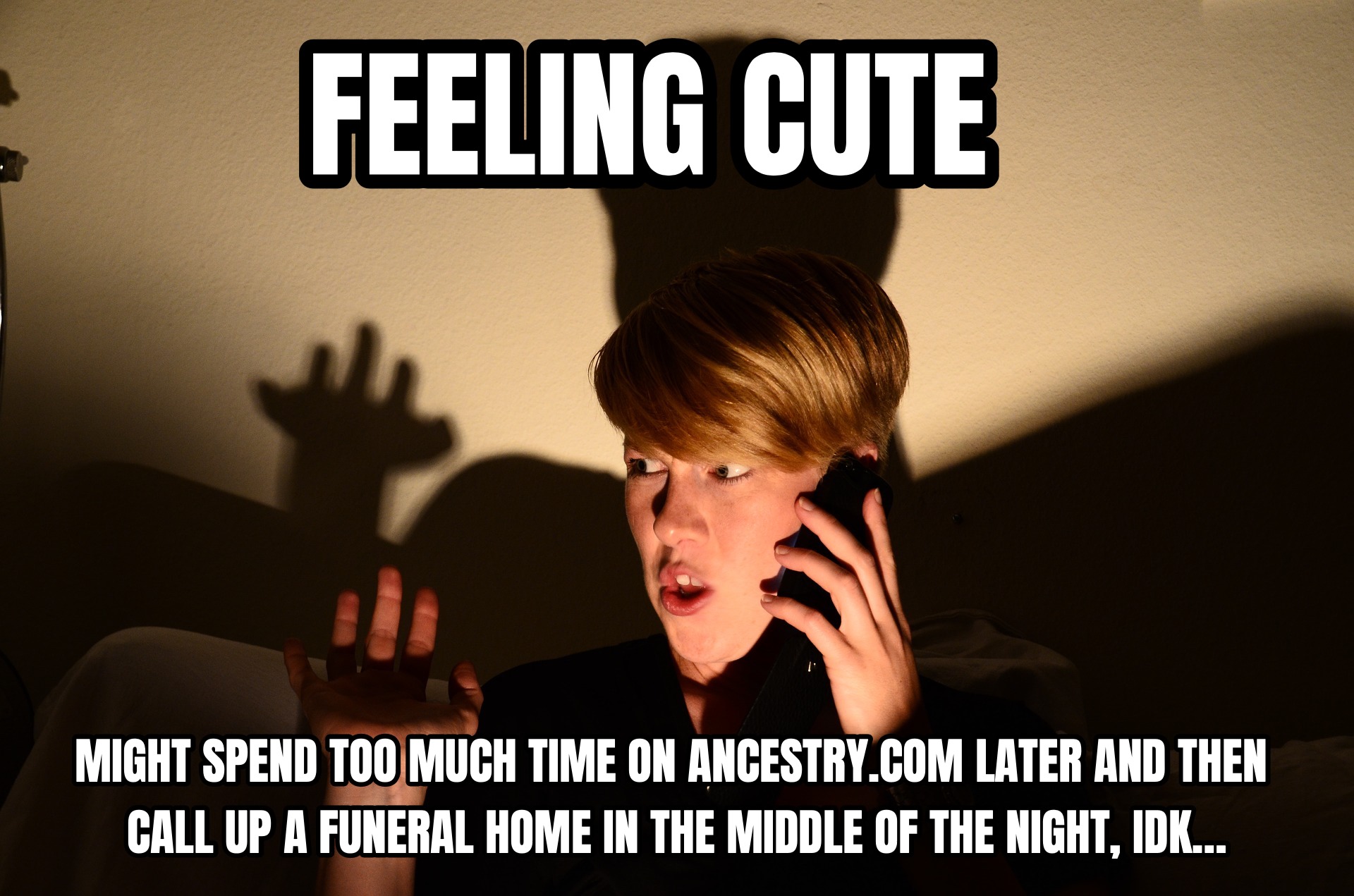
Many ASD clients choose to set up their accounts to designate that we ask certain callers if they need an immediate call back from the funeral home. This is a great option that helps ASD screen calls more tightly for the funeral homes we serve. However, it leaves the option up to the caller to define how urgent their message is which on occasion results in someone thinking their genealogy school project is worth interrupting a funeral director’s mealtime. With the advent of new technology, the expectation that directors should be available at all times has escalated to the point where people now call at 9 and 10 p.m. regarding death certificates.
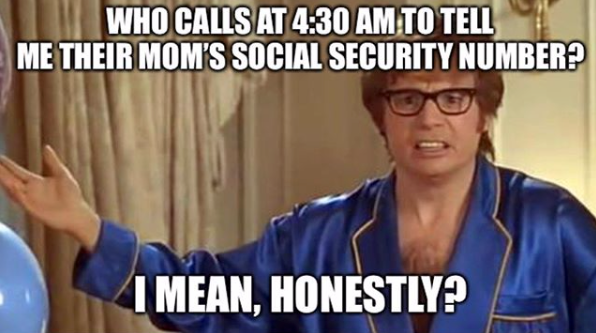
While mobile and internet advancements have made life more convenient, there is no denying we have become a culture of instant results. I began working at ASD in 2003 and I can remember in the past, there were very few calls on Sundays that didn’t involve a recent passing because most people understood that the funeral home office would be closed. Now, florists call from the front door and request that a funeral director, who is at church, be paged so they can deliver early. Since websites can be accessed 24/7, people call at all hours of the day asking for an immediate call back for help with sending an online condolence. Society as a whole has become less accustomed to having to wait for answers, and I am often amazed by how little regard is shown for the personal lives of funeral directors by their callers.
10. The After-Funeral Caller
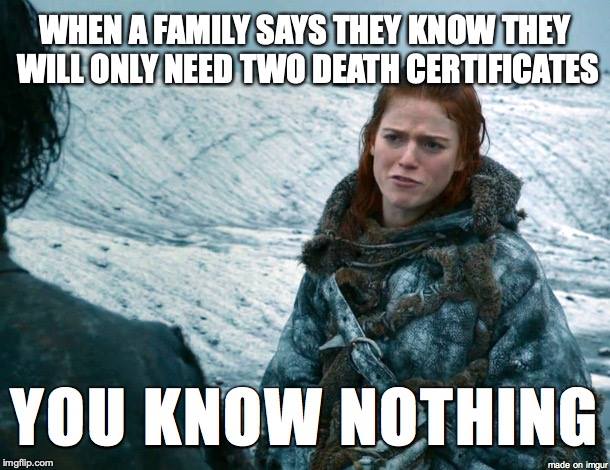
Whether it’s been two days or two decades, funeral homes are frequently contacted by families and others about services they handled in the past. Like grief, the logistics of death do not end after a funeral. With the exception of a new death call notification, the #1 most common call we handle at ASD are death certificate related inquiries. Families almost always need more than they expect to so funeral homes receive many calls regarding ordering more copies. Moreover, funeral homes are also contacted by medical facilities and registrar’s office regarding the issuance of the original certificate.
In addition to these matters, there are often many other loose ends that need tying up after a funeral service concludes. From the processing of insurance or social security claims to the installation or engraving of a monument, these post-funeral calls are a reminder of the many efforts funeral professionals make to serve families through every stage of the process. They give us an appreciation for the mechanics involved with running a funeral home and the often-unseen diligence of those who work in deathcare.
Related Reading
ASD Call Specialists Share Their Most Inspiring Phone Calls
ASD Call Specialists Reveal 24 of the Most Shocking Calls Answered for Funeral Homes
ASD Staff Reflect on Answering Calls During the Peak of the COVID-19 Pandemic
About The Author
Jess Farren (Fowler)
Jess Farren (Fowler) is a Public Relations Specialist and Staff Writer who has been a part of the ASD team since 2003. Jess manages ASD’s company blog and has been published in several funeral trade magazines. She has written articles on a variety of subjects including communication, business planning, technology, marketing and funeral trends. You can contact Jess directly at Jess@myASD.com
